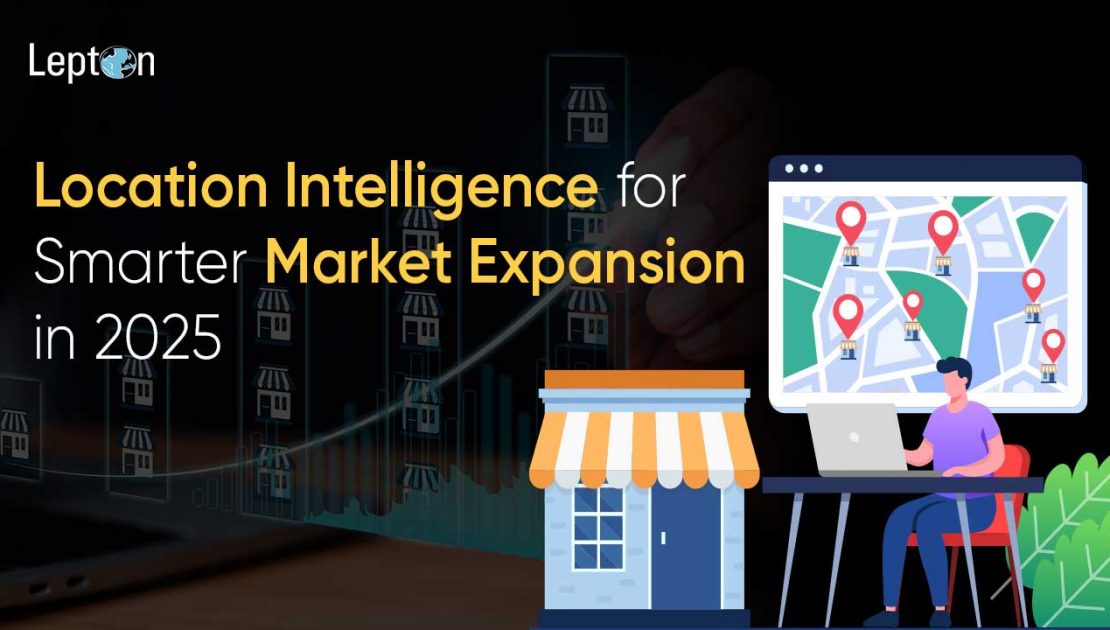It’s a world full of competitors. With many options to choose from for the userbase, companies are putting in extra yards to stand out in the market. This is where in the age of digital disruption and hyper-competitive business landscapes, location intelligence is emerging as a key differentiator for enterprises looking to accelerate market expansion. As we venture into the fast-paced world of user consolidation, leveraging spatial data to inform strategic decisions is no longer a luxury, it is a necessity. From identifying high-potential territory to optimizing sales routes and understanding consumer behavior, businesses are increasingly relying on geospatial insights to gain a competitive edge.
The Role of Location Intelligence in Today’s Competitive Market
With customer preferences constantly evolving and regional dynamics becoming more complex, businesses can no longer depend solely on historical sales data or instinct. Modern market expansion demands precision, agility, and data-driven strategy, and this is where location intelligence steps in. It integrates geospatial data with business information to generate actionable insights through predictive analytics, helping brands make smarter decisions on where to launch a new store, grow influence, or consolidate.
What Is Location Intelligence?
Location intelligence refers to the process of collecting, analyzing, and visualizing geospatial data to solve business problems. It goes beyond mapping; it enables companies to understand relationships between people, places, and behaviors. By blending geographic information systems (GIS), demographic data, and AI-powered analytics, organizations can identify patterns and trends that are otherwise invisible in traditional datasets or through hit-or-trial methods.
From retail chains deciding where to open their next store to telecom providers planning infrastructure rollouts and the next location for their 5G tower, location intelligence empowers strategic decision-making across sectors.
How Market Expansion Strategies Are Changing?
Gone are the days of blanket marketing and one-size-fits-all location rollouts and thinking that the results will go in your favor. Today’s market expansion strategies are hyper-personalized, and demand localized insights for deeper impact. The focus has shifted to identifying underserved micro-markets, optimizing territory management, and reducing go-to-market time. The combination of big data and geospatial intelligence is reshaping how businesses prioritize expansion by focusing not just on where the customers are, but also on where demand is likely to grow next – creating a cumulative plan that keeps a business relevant for as long as possible.
Using Geospatial Data to Identify High-Potential Areas
Geospatial data is the bedrock of modern location intelligence. When combined with socio-economic, environmental, and infrastructural data, it gives businesses a comprehensive view of any geographic area.
Territory Analysis and Demographic Mapping
By leveraging territory analysis, companies can segment markets based on key demographic indicators such as age, income, purchasing power, affluence, and population density. This helps with aligning products and services with customer profiles in each region and with creating customized marketing plans.
For instance, an FMCG company planning to introduce a new health drink can use demographic mapping to identify urban clusters with a high concentration of fitness-conscious consumers. Similarly, telecom operators can analyze data on household density and broadband adoption to plan fiber expansion and infrastructure.
Infrastructure, Competition, and Consumer Behavior Insights
Beyond demographics, location intelligence also offers insights into infrastructure availability, competitor presence, local purchasing behavior and key economic pointers. For instance, understanding the road network quality, public transport access, or proximity to warehouses can help companies structure their supply chain plans – which in turn can lead to better turnaround time which contribute to better recall value and a consolidated presence. Competitive intelligence can help companies’ breakthrough market saturation, allowing brands to position themselves in areas with unmet demand with a whole new strategy.
Driving Market Expansion with Smart Geospatial Tools
A location intelligence tool not only collects data but transforms the data into decisions. Smart geospatial platforms integrate various datasets into intuitive dashboards, allowing for quick analysis and confident decision-making for the stakeholders.
How Location Intelligence Supports Site Selection
Choosing the right location can make or break a new market entry. Smart site selection tools powered by location intelligence evaluate multiple parameters — customer density, foot traffic, accessibility, rental costs, local economic activity and buying patterns to recommend optimal locations for retail outlets, warehouses, service centers and their logistics operations.
In the forthcoming time, businesses will increasingly adopt AI-powered geospatial platforms that simulate different scenarios and forecast performance based on real-time and operational data.
Targeting Underserved Regions Effectively
Location intelligence also helps uncover underserved regions with inadequate supply or service access. By overlaying competitor footprints and sales coverage with population and consumption data, companies can spot untapped potential or areas where they can invest in more. This is particularly useful for sectors like telecom, healthcare, and consumer goods, where last-mile access is crucial for expansion.
Lepton Software’s SmartMarket: Tapping the power 100 M+ Geospatial Data Points
Addressing the market expansion problem statement is Lepton Software’s SmartMarket, a location intelligence platform that focuses on strategic expansion based on historical trends and current location insights.
SmartMarket offers a suite of features including real-time interactive maps, pin code-level intelligence, and seamless API integration with existing enterprise systems. It enables businesses to:
- Visualize sales performance geographically.
- Analyze competitor presence and white spaces.
- Assess infrastructure and potential supply chain challenges.
- Make data-driven decisions on retail expansion.
Whether targeting Tier 1 cities or remote rural clusters, SmartMarket provides the granular insights needed to plan with precision.
Conclusion: Accelerate Growth with Data-Backed Location Decisions
As more tech takes the centerstage, businesses that integrate location intelligence into their market expansion strategies will be better positioned to capture growth, reduce risks, and outpace competitors. From territory planning to site selection and consumer profiling, spatial intelligence transforms raw data into a roadmap for success.
In a world where every decision counts, choosing the right geography at the right time can slingshot a company either to success or to an unfavorable ground zero position. If stakeholders are backed by the right insights, the expansion decision can be the bridge towards market leadership. An objective which gets achieved easily with Lepton’s SmartMarket.

